Get the New World Starter Pack
by giving to Regen Foundation
Introducing Ecological Institutions: Law, Economics, and Technology in a More-Than-Human World

Ecological Institutions is a toolkit to craft animist organizations, a compendium of renewed creation mythologies, and a field guide for reweaving life across social and ecological systems.
It advances an integrated capacity model for regenerative governance. Distinct yet complementary to funding and financing frameworks, Ecological Institutions builds the coherence and infrastructure for organizations and communities to harness resources and compute without being consumed by them.
The first 400 supporters will receive an exquisite limited-edition physical copy of the book, Regen Foundation’s first compendium of work outlining a new world OS for animist organizations.
— Audrey Tang, Taiwan’s Cyber Ambassador and 1st Digital Minister
— Sara Horowitz, Founder of the Mutualist Society and the Freelancers Union
A Story in Three Parts
1. Mythologies
A compendium of renewed creation stories
The stories we tell shape the worlds we can imagine. Seven mythologies weaving old and new lineages of reciprocity to recover what it means to be human in an era of planetary collapse.

2. Rituals and Protocols
An Institution Development Kit (IDK) to craft animist organizations
A playable card set comprised of 22 tear-out governance components. Bridging the world of ritual and protocol, ecological and digital, it’s a workshop and a toolkit for building collective operating systems in your community of practice. A distillation of years of collaboration to cultivate readiness, coherence, and capacity for sovereignty and collective determination.

3. People and Places
A field guide for reweaving life across social and ecological systems
Eight narratives that bring these concepts to life through collaborations between Regen Foundation and grassroots and indigenous communities across five continents.

Ecological Institutions cannot be purchased. It can only be received as a gift, offered in gratitude for a tax-deductible donation to Regen Foundation.
In keeping with the threads of living value that run through its pages, this is not a transaction but a shared commitment to carry the work forward in thought, in practice, and in relation.
This page is a threshold. It's an invitation to join this experiment, to engage not only the ideas the work carries, but also the forms through which they pollinate and evolve.
We’ve only printed 500 exquisite copies for private circulation. Each compresses years of dialogue, thought, and encounter into a living, lichen-tinged artifact… one that leaves your hands dirty, a humble reminder of your own involvement.
Rather than setting a price, we ask you to measure this experience by your own means: what do you charge for five hours of your time, and what would you give to sustain your own capacity for meaningful action?
Reading Ecological Institutions may ask at least five hours of attention—five hours of reflection and possibility.
Your contribution reflects the value you place on this shared inquiry and its continuation. Each offering—financial or in-kind—extends the life of the project, linking thought to practice, research to institution.
Together we are building the kinds of organizations this book envisions: grounded, evolving, and alive to the worlds they serve.
We reciprocate your support with a commitment to steward these resources with integrity, following the credos outlined in the book.
Donations support the development of ecological institutions and living covenants in direct collaboration with an international network of grassroots and Indigenous communities across four continents, as well as the essential organizational and metabolic capacity required to cultivate this work.
The authors maintain close, direct relationships with all collaborators. The degree of intermediation is nil.
Your contribution also creates openings for new collaborations to take root.
Your support will go towards:
- Prototyping three new Ecological Institutions (Aotearoa, East Africa, Americas) by mid-2026
- A river holding communal flood-resilience funding
- A wetland serving as fund and governance body
- A forest stewarding its own data and IP
- Sustain our operational core and team capacity
- A small, highly efficient team ensures that nearly every resource translates directly into tangible outcomes.
- Develop open-source software and institutional design frameworks
- Advancing this work calls for the collaboration of full-stack engineers, legal architects, and allied practitioners.
- Support collaborators, travel, and documentation that bring this work further to life
- Applying the IDK in situ with partner communities.
You can explore our ongoing initiatives below.

We bolster locally-grounded ecological economies by co-designing and deploying grassroots governance systems on Regen Ledger.

Through our microgrant accelerator, we enable communities to prototype DAOs that are hybrid commons of living ecosystems and data.

A framework to expand the legibility of the more-than-human world; from inert resources to living institutions leveraging digital protocols of ownership, governance, and sensing.

We allocate $REGEN governance tokens to diverse stakeholders, embedding equity and shared authority within the digital infrastructure that supports ecological regeneration.

Our body of original thinking which entangles living and information systems and guides our practices in the world.

Our exploration of African Mutualism connects traditional communal systems and knowledge to today's commons, revealing enduring legacies of shared governance and collective resource stewardship.

Agreements and contracts with grassroots and indigenous organizations acting as containers to explore the ethical integration of technology, economics, and law in service to life and interdependence.

The bioregions, events, and communities we grow with!

Roll up your sleeves every month with a community of builders developing the projects and technologies which propel the new regenerative economy.
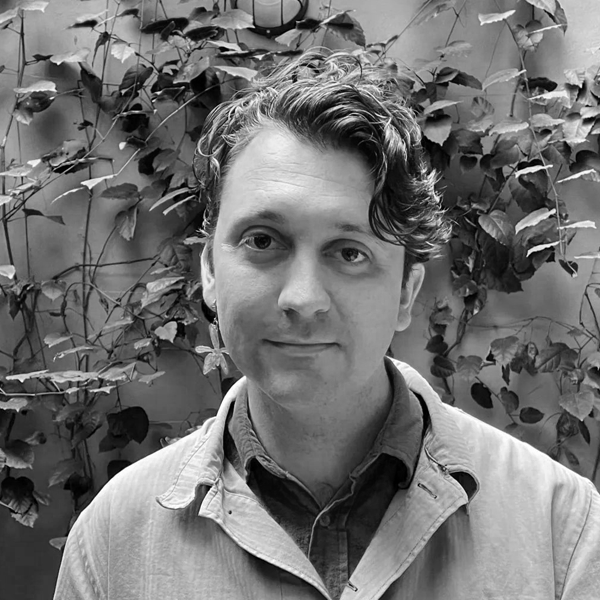
Austin Wade Smith (they/them) is an artist, ecologist, writer, and technologist based in Brooklyn, New York. They are the Executive Director of the Regen Foundation, a non-profit researching sovereign regenerative economies. Their research explores the interrelation of mutualism, animism, and bioregionalism in decentralized technical and economic infrastructures. Previously, they taught critical methodologies on climate justice in art and engineering at universities in New York. They enjoy cultivating orchids, and flying kites.

Shaila is a trusted intermediary and environmental advocate working at the convergence of Finance, ecology, and indigenous knowledge systems. With a background in Economics and disruptive Fintech, she focuses on regenerative models of economic justice, data sovereignty, and cultural resilience. Her work ranges from regenerative, non-monetary systems such as blockchain-based community currencies in Kenya, to teaching Syntropic Agroforestry and researching the intersection of Finance and African Mutualism. She is a certified Data Protection Officer and an internationally exhibited installation artist, which reflects her broader commitment to cultural conservation, environmental justice, and systemic transformation. Whether through policy, soil, or story, her focus is on building futures that are equitable, interconnected, and rooted in community.
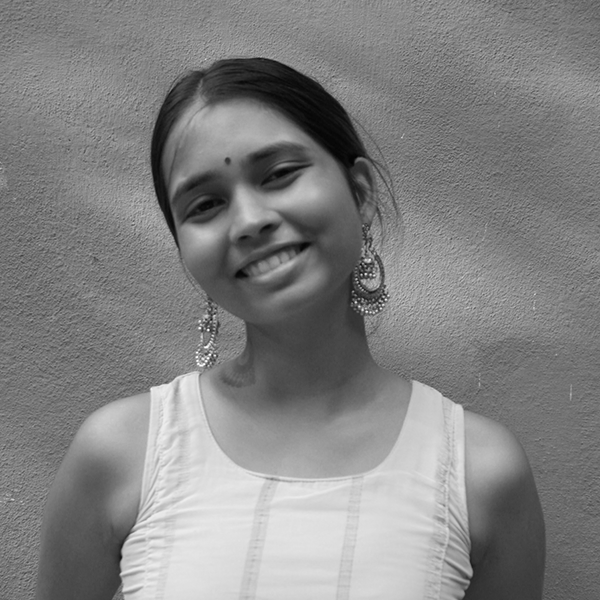
Nena Jain implements bold and complex ideas through designing operational infrastructures, communications, and knowledge systems that support the growth of regenerative movements. Driven by curiosity, she connects complex ideas across disciplines. Her background includes work in Sexual and Reproductive Health and the Fair Trade supply chain sector. Born and raised in Southern India near the Bay of Bengal, she is now based in Vienna. There, she co-stewards a community-led art atelier where she practices sculpting as an animist expression, and hosts a monthly supper club with friends.

Will was a member of the co-founding team of Regen Network in the summer of 2017. He is co-founder of Origins Co-op, a confederated regenerative commodity brokerage, and currently serves as a Board Member and Treasurer at Terra Genesis International PBC, as well as a Steering Board Member at Redesigning for Resilience and Regeneration. Will lives in rural New England, and is passionate about the domains of regenerative agriculture, alternative and gift economics, phenomenology, animism, and myth. He is a citizen of the Connecticut River watershed, and his new endeavor, Hyperbeings, is an ontological framework to see bioregional-scale entities, such as watersheds, from an animist perspective.
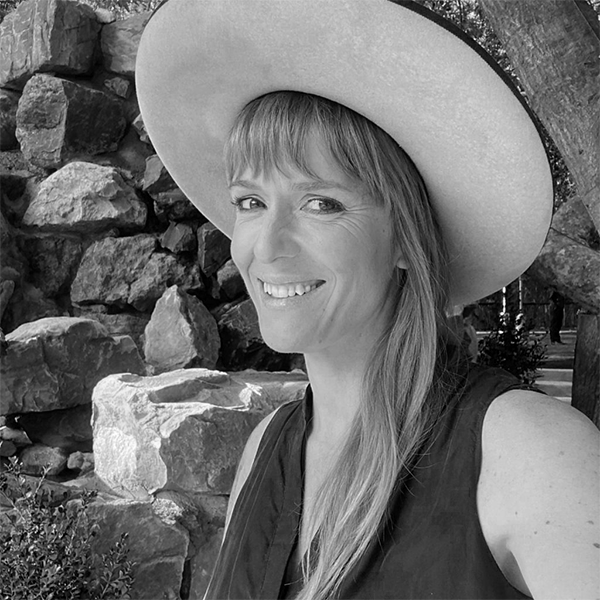
Amanda Joy Ravenhill is Executive Director of the Buckminster Fuller Institute and an active member of the international community focused on addressing imminent global challenges. She previously held the role of Co-Founder and Executive Director of Project Drawdown, a comprehensive plan to reverse global warming. Ravenhill is driven by her experience living and working internationally as well as her enthusiasm to integrate art and science. She is the Executive Director of Buckminster Fuller Institute.
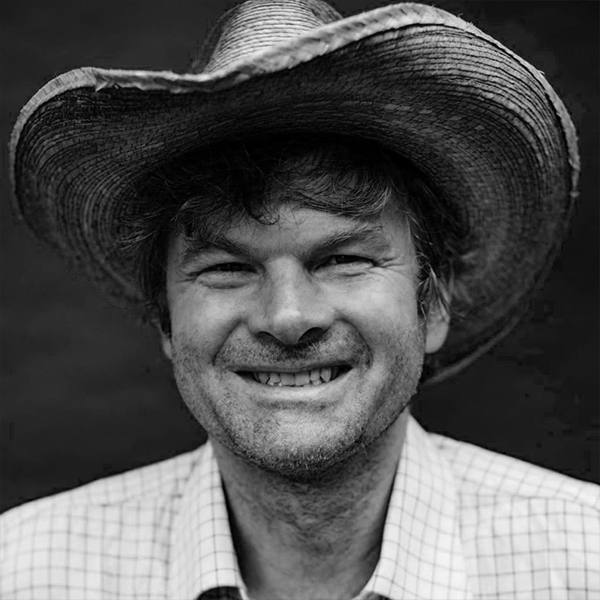
Dr. Dorn Cox, PhD, is the Research Director for the Wolfe’s Neck Center for Agriculture and the Environment, and Founder of FarmOS and the Farm Hack community. Dr. Cox was recognized in 2018 by the National Association of Conservation Districts with the inaugural Hugh Hammond Bennet award for excellence in conservation. Active in the U.S. Soil Health movement, he speaks regularly nationally and internationally about participatory science, open agricultural knowledge exchange, soil health, and regenerative agriculture. He is passionate about the potential for open source agriculture to accelerate innovation and quantify environmental services.
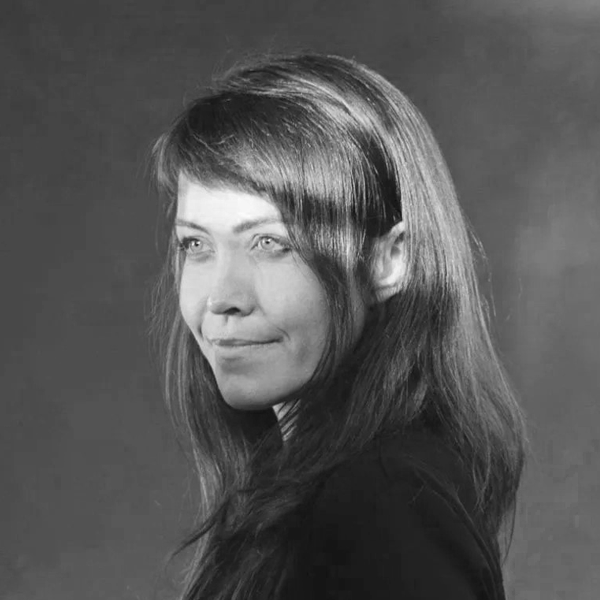
Kei Kreutler is a researcher, writer, and artist interested in how cultural narratives of technologies shape their use. Previously, she worked at Gnosis, building decentralized infrastructure for cryptonetworks, and in 2021, she co-created Gnosis Guild, a small team behind the Zodiac open software standard for interoperable and modular organizational governance tools. She is currently developing a book project on memory as a way of seeing technology, ecology, and economics.
Are you interested in exploring partnerships and collaborations? Contact us via email using contact@regen.foundation
You can also stay updated about our work by signing up for our newsletter
Our $REGEN address: regen1wts9f35khx5r94p3rdwgk3evv0v06ewrfl90th
Our mailing/legal address:
2093 Philadelphia Pike, #9262
Claymont, DE 19703
Design by PROPS.SUPPLY
Development by Tiger Dingsun